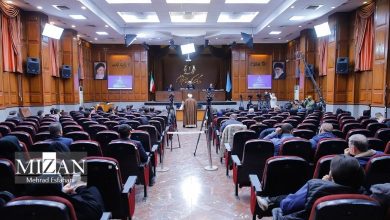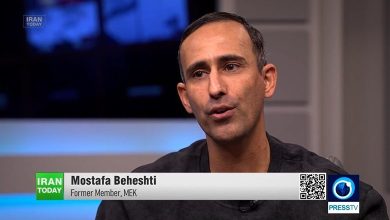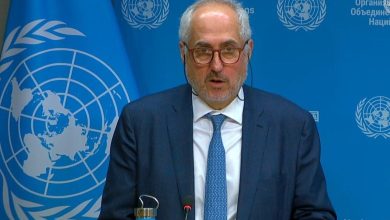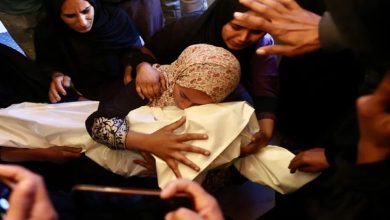Geneva, 13 June 2016 High Commissioner for Human Rights Zeid Ra’ad Al Hussein delivered his speech before 32nd session of the Human Rights Council, at which all of the 193 Member States of the United Nations were represented.
High Commissioner for Human Rights said:
“The best way to fight terrorism, and to stabilize the region, is to push back against discrimination; corruption; poor governance; failures of policing and justice; inequality; the denial of public freedoms, and other drivers of radicalization. It is essential that all security forces conduct counter terrorism operations in line with international human rights standards – avoiding, in particular, arbitrary arrests, arbitrary detention and use of excessive force. Such methods are contrary to international law and create widespread resentment, fuelling greater recruitment by extremist groups.”
Zeid Ra’ad Al Hussein added that:
” hate is becoming mainstreamed. Walls – which tormented previous generations, and have never yielded any sustainable solution to any problem – are returning. Barriers of suspicion are rising, snaking through and between our societies – and they are killers. Clampdowns on public freedoms, and crackdowns on civil society activists and human rights defenders, are hacking away at the forces which uphold the healthy functioning of societies. Judicial institutions which act as checks on executive power are being dismantled. Towering inequalities are hollowing out the sense that there are common goods.”
High Commissioner for Human Rights also pointed out that:
“We are 7.4 billion human beings clinging to a small and fragile planet. And there is really only one way to ensure a good and sustainable future: ensure respect, resolve disputes, construct institutions that are sound and fair and share resources and opportunities equitably. – See more at: On a daily basis, we are witness to horrors of every kind around the world. I extend my condolences and respect to all victims of human rights violations, including the victims of conflict and those who suffer violations of their civil, political, economic, social and cultural rights.”
High Commissioner for Human Rights Zeid Ra’ad Al Hussein in an excellent remark tried to point out some of his concerns towards the observation of the human rights by some countries.He said:
“In Iraq, I am acutely concerned about the situation of tens of thousands of civilians who currently remain trapped inside Fallujah, and I refer you to my public communications on this topic earlier this month. I have urged the authorities to take immediate steps to redress the situation regarding people fleeing the outskirts of the city. I welcome the announcement last week that the Prime Minister will appoint a committee to investigate all allegations of violations committed against these displaced people, and I trust that this investigation will be truly consequential. I also commend the statement by Ayatollah al-Sistani urging security forces to protect the lives of civilians. The country must avoid further divisions or violence along sectarian lines, lest it implode completely.
I am also profoundly concerned about the suffering of the people of Yemen. The armed conflict that began more than a year ago has taken a terrible toll on civilians, with 9,700 civilian casualties documented by my Office. The humanitarian situation is disastrous and continues to worsen. More than 21 million Yemenis – 80% of the population – need basic assistance, 2.8 million people have been forced to leave their homes. Humanitarian aid is frequently obstructed by the parties to the conflict and limited by funding difficulties. In September, I will be submitting a comprehensive report on human rights violations in Yemen and the progress made by the national commission of investigation. I strongly urge all parties to the conflict to abide by their obligations under international humanitarian law, in particular concerning the protection of civilians. The delivery of humanitarian aid must be ensured in all conflict zones and besieged areas.
The disaster of Syria continues to deepen. So disturbed are we by the Inferno that Syria has become that to brief, month after month, this gathering or other bodies has become grotesque in itself. Collecting and analyzing information so appalling, and reporting on it, is intended to serve action. But when it simply piles up and then dissipates into the corridors of power, we are shaken, feeling as I’m sure many around the world feel, almost helpless in this horror.”
Zeid Ra’ad Al Hussein highlighted a number of unpleasant behavior of some governmental or non-governmental forces in battlefields and said:
“Torture, arbitrary detention, enforced disappearances, forced evictions and the destruction of schools and entire neighborhoods continue unabated. Hospitals are attacked, apparently deliberately: last week, in Aleppo, three medical centers hit in a single day – one, a paediatric center, for the second time. Women and girls in particular, and minorities, are abused by twisted fanatics with dehumanizing sadism that is part of no religion. Over half a million people are trapped in sieges by government forces or armed groups, and are forced to scavenge for their basic needs – in some cases, since 2012. In yet another atrocity, on Friday the people of Daraya were hit by multiple air and ground attacks – just hours after aid made it through to them, for the first time in four years.”
He also pointed out that :
“When the reckoning is taken, all global decision-makers will find their legacy has been forever damaged by their failure to take decisive action to end this terrible, and entirely preventable, conflict. The serious and systematic crimes that are being inflicted daily on the people of Syria profoundly dishonor all those responsible.”
At the end of his speech Zeid Ra’ad Al Hussein concluded:
“Respect for human rights offers States a path towards greater stability, not less. And assistance in establishing that path is what my Office, in all humility, offers. We shed light on protection gaps in order to help States repair them. I urge you to assist our work, and to avail yourselves of the help we offer. Despite the often terrible trends that I have outlined in this discussion, I firmly believe that it is not yet too late to act.”





